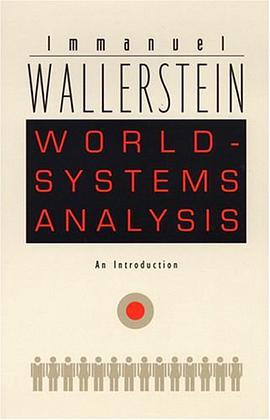
An Introduction (A John Hope Franklin Center Book)
Immanuel Wallerstein
简介
In World-Systems Analysis, Immanuel Wallerstein provides a concise, accessible, and comprehensive introduction to the revolutionary approach to understanding the history and development of the modern world that he pioneered thirty years ago. Since Wallerstein first developed world-systems analysis, it has become a widely utilized methodology within the historical social sciences and a common point of reference within discussions of global processes. Now, for the first time in one volume, Wallerstein offers a succinct summary of world-systems analysis and a clear outline of the modern world-system, describing the structures of knowledge upon which it is based, its mechanisms, and its future. Intended for general readers, students, and experienced practitioners alike, this book presents the definitive overview of world-systems analysis by its original architect. Wallerstein explains the defining characteristics of world-systems analysis: its emphasis on world-systems rather than nation-states, insistence on the need to consider historical processes as they unfold over long periods of time, and demand that bodies of knowledge usually viewed as distinct from one another - such as history, political science, economics, and sociology - be combined and considered within a single analytical framework. He describes the world-system as a social reality comprised of interconnected nations, firms, households, classes, and identity groups of all kinds. He identifies and highlights the significance of the key moments in the evolution of the modern world-system: the development of a global capitalist economy in the sixteenth-century, the beginning of two centuries of liberal centrism in the French Revolution of 1789, and the undermining of that centrism in the global revolts of 1968, which triggered a terminal structural crisis within the modern world-system.
contents
Acknowledgments
To Start: Understanding the World in Which We Live
1. Historical Origins of World-Systems Analysis: From Social Science Disciplines to Historical Social Sciences
2. The Modern World-System as a Capitalist World-Economy: Production, Surplus-Value, and Polarization
3. The Rise of the States-System: Sovereign Nation-States, Colonies, and the Interstate System
4. The Creation of a Geoculture: Ideologies, Social Movements, Social Science
5. The Modern World-System in Crisis: Bifurcation, Chaos, and Choices
Glossary
Bibliographical Guide
Index